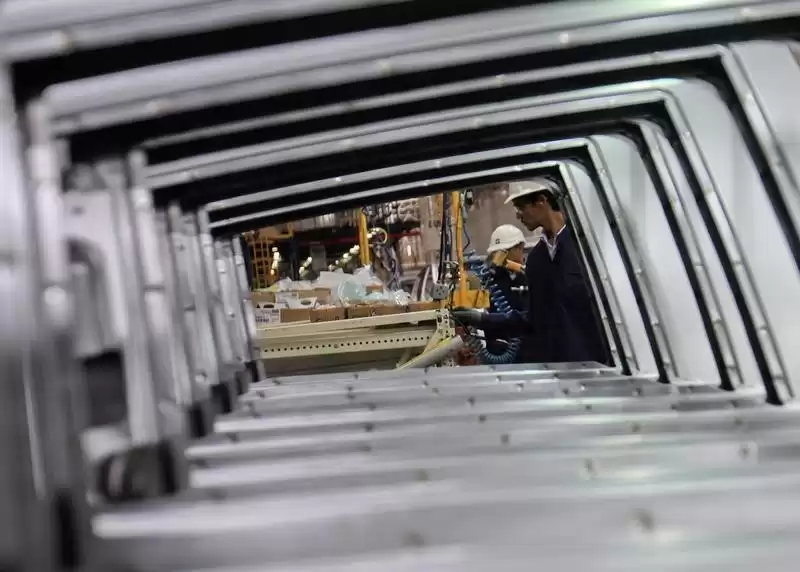Ford's UAW Agreement Paves Way For Wage Hikes, Stirs Unionization Efforts
Ford has reached a tentative agreement with the United Automobile Workers (UAW) that includes a 25% wage increase and improved retirement benefits. The deal could influence future contracts with other automakers and potentially lead to increased costs. It is seen as a potential deterrent against labor unrest during Ford's transition to electric vehicles. Non-union automakers may face pressure to increase wages in response to Ford's move. The ability to produce innovative electric vehicles will be key in maintaining market position.
In a groundbreaking development that could have profound implications for the automotive industry, Ford has recently reached a momentous agreement with the United Automobile Workers (UAW). This tentative agreement includes a remarkable 25% wage increase spread over a span of four and a half years, along with enhanced retirement benefits and various other favorable terms. The announcement of this historic deal was made on Thursday, signaling a potential shift in the landscape of labor relations within the auto industry.
The reverberations of this agreement are expected to extend far beyond Ford's own operations. It is widely anticipated that this landmark deal will serve as a blueprint for future negotiations with other major players in the industry, such as General Motors and Stellantis. As a result, these automakers may face increased costs as they strive to meet the demands set forth by the UAW. However, industry analysts at Barclays remain optimistic, asserting that these additional expenses are manageable and should be viewed as an impetus for fostering innovation in the production of competitive vehicles.
Indeed, Ford's commitment to innovation has been a central theme in this agreement. The company's revolutionary F-150 Lightning truck and Mustang Mach-E sport-utility vehicle have been hailed as exemplary products that embody the spirit of innovation in the electric vehicle market. By showcasing these cutting-edge vehicles, Ford has not only demonstrated its dedication to staying ahead of the curve but has also solidified its position as a leader in the industry.
Moreover, this agreement holds significant implications for Ford's transition to electric vehicles. As the company navigates this critical period of transformation, the deal with the UAW serves as a crucial safeguard against potential labor unrest. Joshua Murray, an esteemed industry expert, believes that the agreement will provide stability and ensure a smooth transition during this pivotal time.
However, the effects of Ford's agreement are not limited to traditional auto manufacturers alone. Non-union automakers, including industry giants like Tesla, Toyota, Nissan, Honda, BMW, Mercedes-Benz, and Volkswagen, may now face mounting pressure to increase wages in response to Ford's bold move. The UAW, emboldened by the success of the Ford agreement, aims to unionize these factories and leverage the newfound bargaining power to secure better working conditions and benefits for their members.
Rebecca Kolins Givan, an esteemed labor relations specialist, emphasizes the significance of innovative products in the fiercely competitive electric vehicle market. While wage increases may pose challenges in terms of cost competitiveness against companies like Tesla, Givan asserts that the ability to produce groundbreaking electric vehicles will be paramount in maintaining a strong market position. In this rapidly evolving landscape, companies must strike a delicate balance between satisfying the demands of their workforce and pushing the boundaries of innovation.
In conclusion, Ford's groundbreaking agreement with the UAW has set in motion a series of events that could reshape the automotive industry as we know it. With its substantial wage increase, improved retirement benefits, and emphasis on innovation, this deal serves as a catalyst for change and a potential deterrent against labor unrest. As other automakers grapple with the implications of this agreement, the industry as a whole is poised to witness a transformative shift in labor relations and a renewed focus on producing competitive, innovative vehicles in the era of electrification.











Comments on Ford's UAW Agreement Paves Way For Wage Hikes, Stirs Unionization Efforts